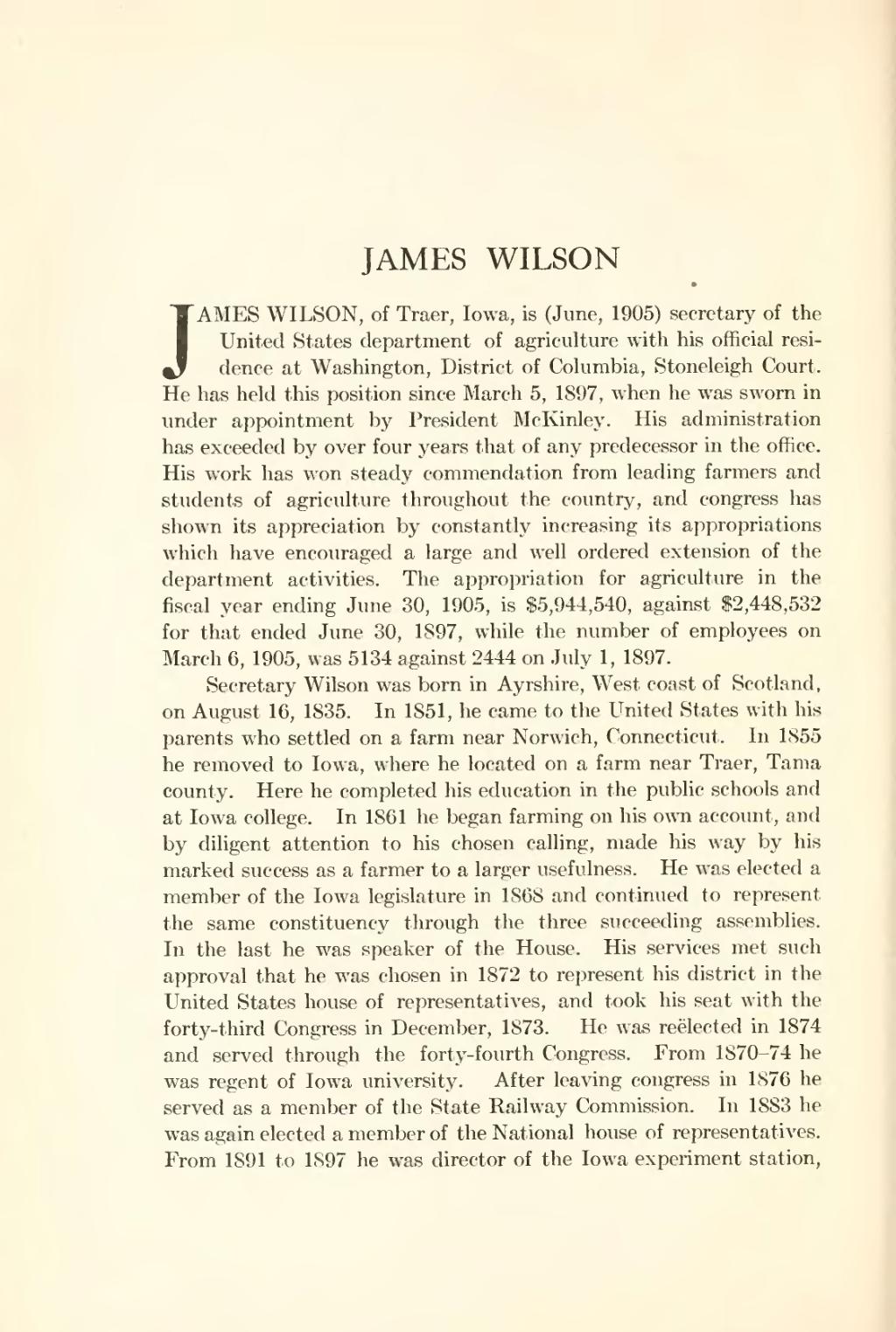JAMES WILSON
JAMES WILSON, of Traer, Iowa, is (June, 1905) secretary of the United States department of agriculture with his official residence at Washington, District of Columbia, Stoneleigh Court. He has held this position since March 5, 1897, when he was sworn in under appointment by President McKinley. His administration has exceeded by over four years that of any predecessor in the office. His work has won steady commendation from leading farmers and students of agriculture throughout the country, and congress has shown its appreciation by constantly increasing its appropriations which have encouraged a large and well ordered extension of the department activities. The appropriation for agriculture in the fiscal year ending June 30, 1905, is $5,944,540, against $2,448,532 for that ended June 30, 1897, while the number of employees on March 6, 1905, was 5134 against 2444 on July 1, 1897.
Secretary Wilson was born in Ayrshire, West coast of Scotland, on August 16, 1835. In 1851, he came to the United States with his parents who settled on a farm near Norwich, Connecticut. In 1855 he removed to Iowa, where he located on a farm near Traer, Tama county. Here he completed his education in the public schools and at Iowa college. In 1861 he began farming on his own account, and by diligent attention to his chosen calling, made his way by his marked success as a farmer to a larger usefulness. He was elected a member of the Iowa legislature in 1868 and continued to represent the same constituency through the three succeeding assemblies. In the last he was speaker of the House. His services met such approval that he was chosen in 1872 to represent his district in the United States house of representatives, and took his seat with the forty-third Congress in December, 1873. He was reelected in 1874 and served through the forty-fourth Congress. From 1870-74 he was regent of Iowa university. After leaving congress in 1876 he served as a member of the State Railway Commission. In 1883 he was again elected a member of the National house of representatives. From 1891 to 1897 he was director of the Iowa experiment station,

